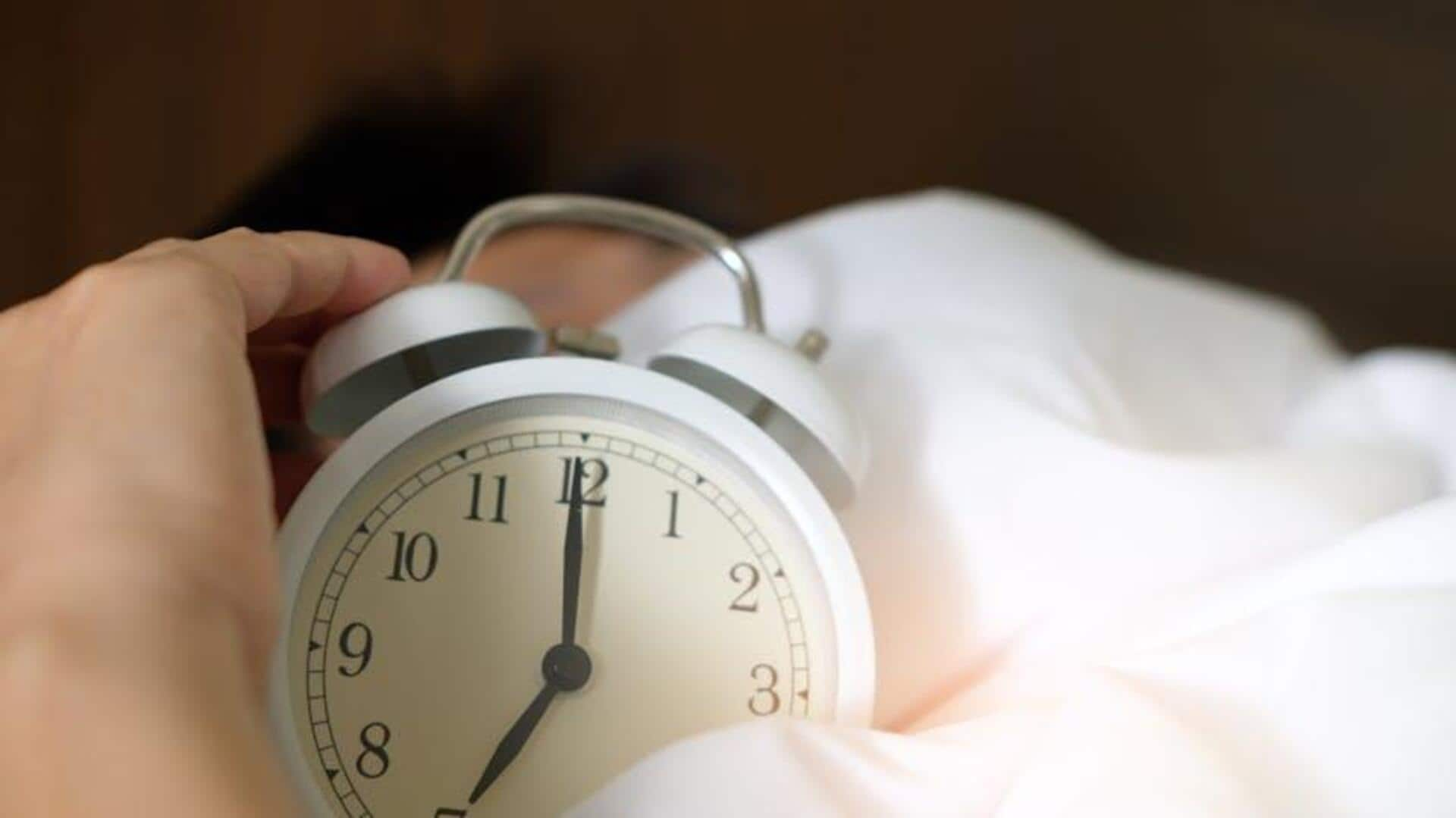
5 sleep myths you should stop believing
What's the story
Sleep is a crucial part of overall health, but there are a lot of myths surrounding it. These myths can contribute to bad sleep habits and impact your well-being. Knowing the truth behind these myths can improve your rest and make you function better in your day-to-day life. Here are five common sleep myths that need to be busted for good.
Sleep duration
Myth: Everyone needs eight hours of sleep
We all believe that everyone needs exactly eight hours of sleep, but that's not completely true. Everyone's sleep needs are different depending on age, lifestyle, and genetics. While some of us are fine with seven hours, others may need nine or more to be the best versions of themselves. It's important to pay attention to your body and modify your sleep schedule accordingly.
Weekend recovery
Myth: You can catch up on sleep during weekends
Many think they can make up for lost sleep during the week by sleeping in on weekends. But this can throw off the body's internal clock, resulting in irregular sleep patterns. Consistent bedtime routines are more useful in keeping healthy sleep cycles than attempting to make up over the weekend.
Snoring concerns
Myth: Snoring is harmless
Snoring is mostly considered a harmless nuisance but it can serve as a sign of underlying health problems such as obstructive sleep apnea. The condition affects breathing while you sleep and may lead to severe health problems if ignored. If snoring is loud or frequent, seek medical advice for a proper evaluation.
Alcohol effects
Myth: Alcohol helps you sleep better
While many think a nightcap could help you sleep, that's a myth. At first, it may appear to make you sleepy, but it really disturbs your sleep cycle as the night progresses. In fact, it impacts the REM (rapid eye movement) stage, which is essential for restorative sleep. This results in a night of fragmented sleep and reduces the overall quality of your rest.
Screen time impact
Myth: Watching TV helps you fall asleep
Many people rely on TV as a way to unwind before sleeping. But that's actually counterproductive. TVs emit blue light, which greatly interferes with melatonin production. Melatonin is an important hormone for regulating sleep-wake cycles. Blue light exposure just before bed makes it harder to sleep, defeating the purpose of unwinding. This disruption can even make it difficult to fall asleep and affect sleep quality.